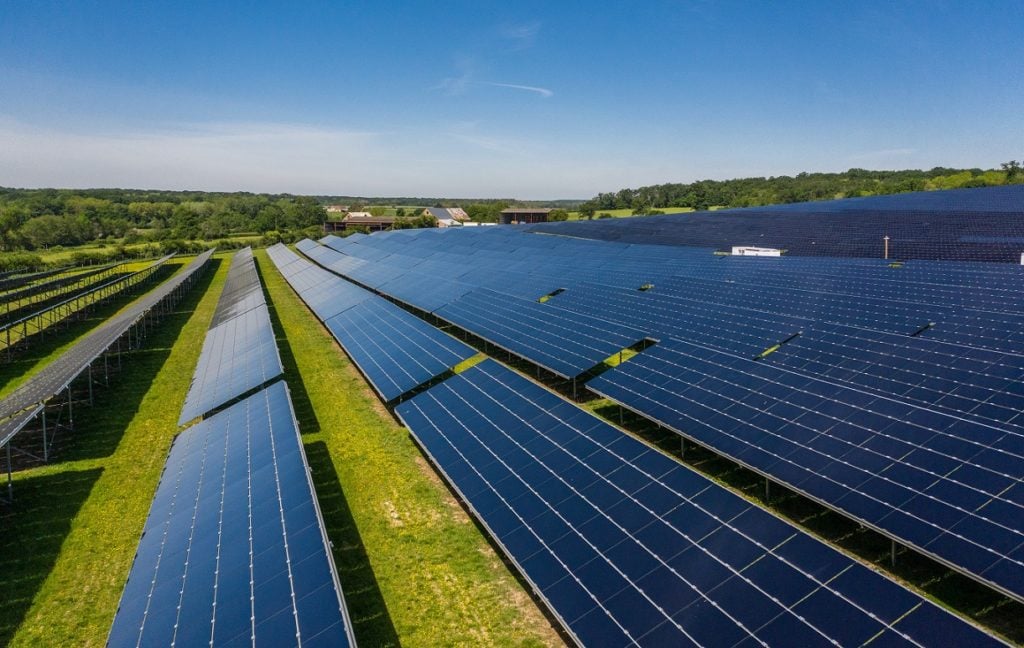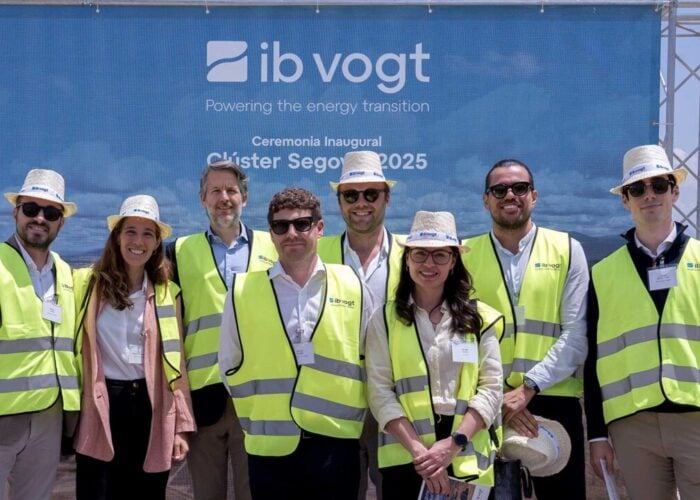
The combination of strict land legislation, elaborate permitting and a fiercely competitive solar developer market trying to meet ambitious PV deployment targets is causing issues for the French solar market.
Speaking at the Solar Finance and Investment Europe (SFIE) conference in London this week, Marion Jesberger, head of finance and deputy general manager, France at ib vogt said: “In France there is huge land scarcity, and…there is a lot of tension regarding that.”
Unlock unlimited access for 12 whole months of distinctive global analysis
Photovoltaics International is now included.
- Regular insight and analysis of the industry’s biggest developments
- In-depth interviews with the industry’s leading figures
- Unlimited digital access to the PV Tech Power journal catalogue
- Unlimited digital access to the Photovoltaics International journal catalogue
- Access to more than 1,000 technical papers
- Discounts on Solar Media’s portfolio of events, in-person and virtual
The tension, she said, boils down to two factors. First, competition in the marketplace for solar developers is “fierce” as developers look to play their part in France’s renewable energy targets, which the government recently raised in its updated National Energy and Climate Plan (NECP) to 60GW by 2030.
She added that this ambition is made more tense by France’s permitting process which can delay projects significantly, making financing harder to come by, and a recent “spike” in rents for land, which she said has reached as much as €30,000 per hectare.
This land itself is also a point of tension, as France’s laws mean that ground-mounted solar projects are “competing more and more with agricultural land” to justify themselves as a business proposition.
Xavier Daval, chair of the French solar trade association SER SOLER and another panelist speaking at the event, elaborated on this situation: “It’s what I call ‘the French paradox’. France is the largest country in the EU [by land area]…but if you consider [population] density, if you exclude Paris there’s no one.”
Daval’s explanation of this, as it pertains to solar deployments, is that French law allocates around 52% of its land to agriculture, 40% to natural forests and the remaining 9% to human activity. This remaining land is also intended to accommodate cities and infrastructure like roads and railways, leaving little space for utility-scale solar deployments.
Permitting and land
Mathilde Ketoff, director and head of debt investment at Rgreen Invest pointed out that the French government had introduced a law last year to clarify priority lands that can be used for solar PV developments and shorten the time it takes for permitting. “At least in that specific area,” she said, “we could speed up the administrative process to make sure you don’t have [to wait] five years to develop a PV project.”
Jesberger echoed this sentiment, saying that whilst land was a concrete issue that was harder to change, it would be feasible to change legislation to ease the development process for companies in France. “As a developer,” she said, “you invest for maybe seven years before you can actually cash in on your project. Or you have projects that are fully developed…but because you need to create a new substation or something, you will have to keep your project for five or six years doing nothing.”
An emergent theme of the discussion was the impediment that bureaucracy in France poses to solar developers. Ketoff compared France with Poland, where the project development process sees developers identify the land, then submit a request for grid connection and early in the process, “so you know whether you can continue or just walk away and change it.”
Polish developers are also able to have their grid connection deposit refunded at any point in the process, Ketoff said, which creates a more favourable environment for developers and financiers.
This bureaucracy can present conflicts between national and local action, Jesberger said. The French government has committed to very large solar deployment targets – which is has missed more than once – and signed up to EU climate initiatives, but “permitting is done at the local level”, said Jesberger, “where you have human beings who sometimes want to be reelected and have another agenda. You feel that you have two agendas in France.”
Cultivating opinion
The panelists also discussed the need for developers to engage with communities to tackle the levels of pushback against PV projects in France, on top of the restrictive land laws.
“The opposition is fear,” Daval said, “People are scared of what they don’t understand and what they don’t know. I think it’s our responsibility as the solar industry to demonstrate that we can do good things, small things, that will help to heal the planet.”
A solution, well-discussed by this point, could be agrivoltaics, the pairing of agriculture and solar PV on the same land to generate both food and electricity.
“We have this conflict between agricultural land and PV and the business model that is still to be defined as AgriPV,” Jesberger said. “As developers we need to see how we can share value more and more within the local communities in order to increase the acceptability of the projects.”
Agrivoltaics is already a feature of France’s dedicated solar government auctions, and over a quarter of the record 1.5GW capacity awarded in the September auction went to agrivoltaic projects. It is already law for developers to provide consultation and benefits for communities, but the panelists suggested that considering community reaction and opinion more fully could help remove at least one of the barriers that is holding back France’s solar segment.







